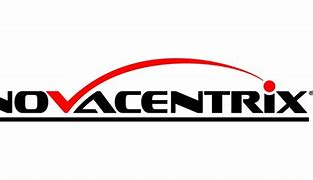We are changing our name from Blue Wolf to QIC Global
We are changing our name from Blue Wolf to QIC Global
Enhance your students' satisfaction by improving your institution’s operations with ISO 21001. Allow our professionals at QIC Global to help you with third-party audits and certification.





Educational system management is necessary to provide quality services to the students. To enhance their knowledge through an enjoyable learning experience, ISO 21001 has brought a practical set of clauses. They act as a guide for improving the efficacy level of the academic operations. The aim is to ensure the learners are satisfied with the curriculum. By implementing the clauses with the help of an internal audit, academic institutions find the existing flaws and improve the system with relevant action plans. ISO 9001 quality management clauses have directly influenced the requirements of ISO 21001. Hence, the clauses predominantly consider the learning needs of the students.
The standard offers a comprehensive framework to manage educational operations for enhancing student satisfaction. The quality of the education and infrastructure is the two main concerns of the standard. By getting accredited with 100% compliance, an institution demonstrates its commitment and value towards the welfare of the learners and the regulatory conditions. With the support of the ISO system, schools, colleges, and universities can efficiently standardize their process. ISO 21001 plays a pivotal role in establishing a protocol that ensures proper facilities and educational resources for the students.
ISO 21001 is the educational quality management system standard acknowledged across the globe. It has made its identity by offering a set of clauses for quality educational operations. The following practices are promoted by the standard -

The ISO 21001:2018 is a framework where the learner satisfaction and quality of education will improve through Educational Organization Management Systems (EOMS).
The major compliance requirements are:
Some of the audit problems that educational organizations experience include:
The presence of these issues will damage credibility and satisfaction among learners.



We worked with many medium and large sized companies that require a level of quality assurance in order to satisfy their customers,


Being new to the process and this being our first year or first time going through the audit process I was very satisfied with the patience they showed with us.


“I want to express my sincere appreciation for your support during our recent ISO audit.”


“One of the best business decisions I think we've made in the entire time we've been here in the company.”


We make auditing your ISO Standards easy. We know audits can be stressful. We’ll take the stress out.


“What seemed like a very intimidating process … was made simple … and [has] elevated our quality and safety program to another level.”


“…our staff feel comfortable talking to [the auditor]… makes you feel like you are working together”


“…Relaxed, didn't feel pressured..."


“I would just say, if you want the best and you want to things done quickly and accurately that I’d go with Blue Wolf. The service was great. Again, just to the point, very speedy, not a lot of fluff around things. We just got to work and got it done and that was the objective.”


“Your approach [to the audit process] is by far superior than any other audit I’ve ever been through. The contrast was night and day”


“There was so much going on at the time of the audit that I just wanted to go back to the audit, it was more relaxing”


“I don’t ever want to experience an audit a different way”


“If everybody could have an audit experience like this, more and more people would actually consider an ISO certification”


“I learned a whole lot from what we just went through with [the auditor] that I didn’t even understand about the standard before”


“Our experience has been that this process in working with the auditors has shown us more ways to improve internally than what we expected”


“What seemed like a very intimidating process … was made simple … and [has] elevated our quality and safety program to another level.”


“…Relaxed, didn't feel pressured..."


“…our staff feel comfortable talking to [the auditor]… makes you feel like you are working together”


“It’s a very smooth and very clear process. Definitely recommended.”


"The auditor was very knowledgeable, very understanding, very helpful."


“Would give them a 10 out of 10 and would highly recommend them to anybody looking to get ISO certification in the future.”


“I found Blue Wolf to be the Cheapest and most experienced in my eyes ‘cause all of the price ranges were higher than Blue Wolf, so I stuck with Blue Wolf. Their quality was very high as well.”


“The service provided by Blue Wolf has been second to none.”


“Blue Wolf streamlined the entire process. They were very easy to communicate with and work with, very cordial, and just an all-around good experience.”


“Blue Wolf makes a great partner for not only getting but maintaining your ISO certifications.”
Quality Management Systems
Environmental Management Systems
Occupational Health and Safety Management Systems
Information Security Management Systems
The Information Technology (IT) Service Management System Standard for earning global recognition!
Global Quality Management Standard for Medical Devices
Energy Management System efficiency
Food Safety Management Systems
Anti-Bribery Management System
Business continuity management system
The Privacy Management Standard for corporate documents
The education management standard for a better learning experience!